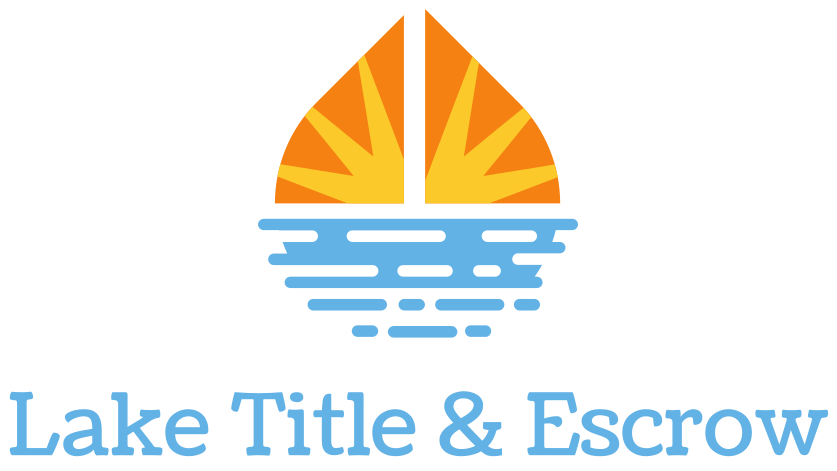What is title insurance?
Title insurance provides protection from hidden risks due to unforeseen circumstances or claims that may be made on your property. The policy provides protection from financial loss and payment of all legal costs to defend against any title claims.
What are the risks?
Numerous defects or problems can come up to threaten your title to your property. Despite careful examination of the public record, there are still some hidden risks that can create a legal and financial headache. Some title problems may only arise months or years after your closing, such as:
Unprobated wills
Errors in indexing of public records
Errors in recording legal documents
Deeds from companies and corporations that are no longer existent
Liens revolving around unpaid taxes
Missing or undisclosed heirs
Deeds from minors, aliens, or persons of unsound mind
Failures of spouses to join in conveyance
Forged deeds, releases, wills, or other legal documents and issues
Why is a Title Search/Examination important?
A Title Search/Examination is a close examining or investigation of all public records that affect the title to the real estate property you are purchasing. The search involves reviewing past deeds, wills, and trusts to make sure the title has passed correctly to each new owner. The examiner tries to verify that all prior mortgages, judgments, and other liens have been paid in full.
This process is an early step in the process; if an issue is discovered, most often we take care of it without you even knowing. After any title problems are resolved, you are able to purchase your property.
WHy Do I need Title Insurance?
Hidden risks are still possible even after an extensive title search because it is limited to public records. These records may not reflect claims of false impersonations, forgeries, missing heirs, improperly probated wills, or clerical errors in recording legal documents, thereby putting your investment at risk. Additional risks can also be found around identical name confusion, deeds executed under expired or false powers of attorney, unsatisfied claims not shown in the public record, and mistaken interpretation of wills and trusts. Title insurance through Lake Title & Escrow buys you peace of mind should any peculiar situation arise.
What types of policies are available to homeowners?
Two policies are available to homeowners:
Enhanced Owner’s Title Insurance Policy
Owner’s Title Insurance Policy
Do different title companies charge different rates?
The Virginia Bureau of Insurance sets and regulates title insurance rates. You only pay the premium once. The purchase price and the loan amount help determine the cost. Lake Title & Escrow is more than happy to provide you with a quote.
What is Escrow?
Escrow is the holding of assets by a third party until certain conditions are met. In real estate, an escrow company holds the seller’s deed and the purchaser’s money until all terms of the sale are completed.
Beyond just holding the money, Lake Title & Escrow makes sure the title is insurable and records the deed and other legal documents with the court. Lake Title & Escrow will also pay various settlement expenses such as the agent’s sales commission, appraisal fee, transfer fee, the seller’s mortgage balance, as well as other tasks.
How is title insurance different from other types?
Title insurance is different than other types because it protects you from issues that occurred in the past. Other types of insurance protect you from issues that occur in the future. One thing to note: title insurance does not protect against an error that originates at a later date.
Who’s covered?
Lender’s Policy: The lender is only covered in this policy, which is required by the mortgage company.
Owner’s Policy: This insures the purchaser for as long as they or their heirs have an interest in the property.
Enhanced Owner’s Policy: The Enhanced Policy protects not only your property up to the time of purchase but also insures your investment for the future.
What are the most common types of tenancy?
“Tenancy” means to hold title, of which there are variety of ways to do so in Virginia. According to our legal representative, Thomas Lipscomb, the most frequent tenancies used in Virginia are:
Sole Owner - One who holds possession to land with no one else.
Tenants in Common - Two or more people who hold land together, either equally or with designated percentage interest between them. Upon an owner’s death, the shares pass onto their heirs.
Joint Tenants with the Full Common Law Right of Survivorship - Two or more people who hold land together with one interest between them all. Should an owner die, the surviving owner(s) will own the land. The decedent’s interest in the land will pass to the surviving owners and not to heirs.
Tenants by Entirety with the Full Common Law Right of Survivorship - Spouses who hold land together. Should one spouse pass away, the surviving spouse shall own the land. The decedent’s interest in the land will pass to the surviving owners and not to heirs. Additionally, a creditor of one spouse many not attach a lien to the property to secure a judgment, but a creditor of both spouses may attach a lien to the property to secure a judgment, except for a federal IRS tax lien against one which will be a lien on the property.

